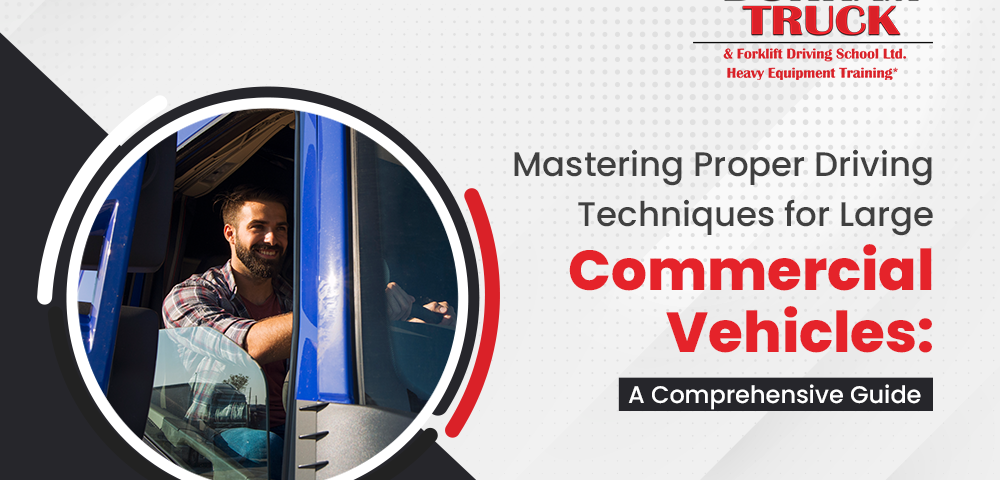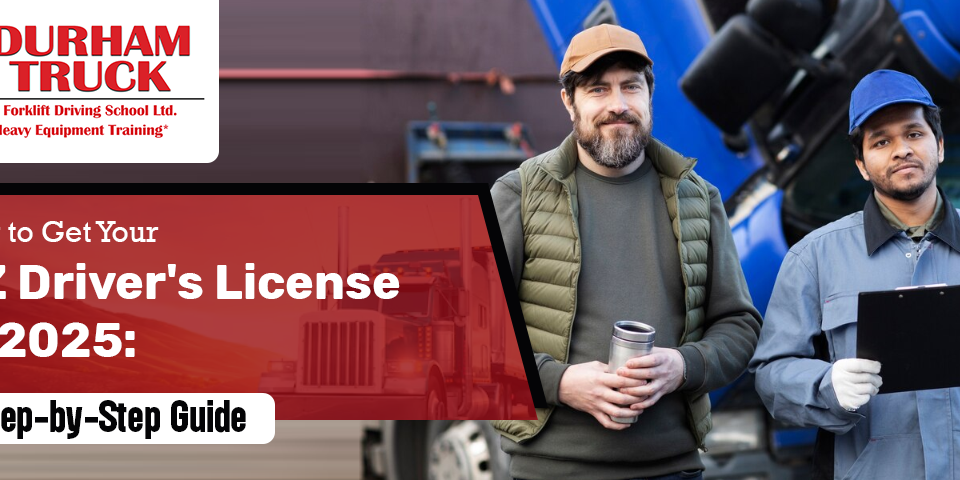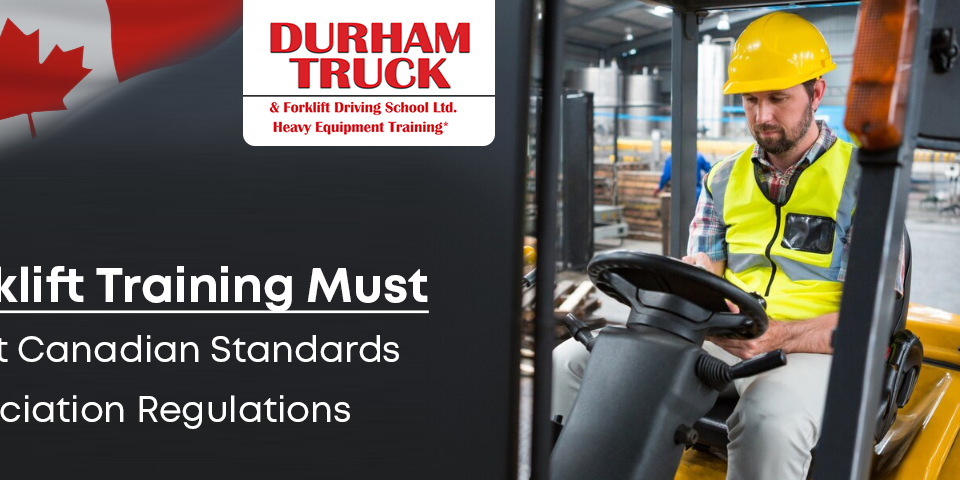Mastering Proper Driving Techniques for Large Commercial Vehicles: A Comprehensive Guide

Mastering the Art of Forklift Operation: Essential Tips for Construction Site Safety
February 21, 2024
Mastering Forklift Counterbalance Training with Durham Truck and Forklift Driving School Ltd.
March 20, 2024Introduction
Driving large commercial vehicles, such as trucks, demands unique skills and knowledge beyond what is required for regular passenger cars. Aspiring truck drivers must undergo specialized training to master the proper driving techniques for operating these massive vehicles safely and efficiently. This comprehensive guide will delve into the key aspects of mastering proper driving techniques for large commercial vehicles, drawing insights from the Durham Truck and Forklift Driving School Ltd., a truck training school.
The Importance of Specialized Training
Large commercial vehicles present distinct challenges that require specific skills and techniques. Size, weight, and handling characteristics vastly differentiate commercial driving from operating regular automobiles.
- Enhancing Safety on the Road
Safety is paramount when it comes to driving large commercial vehicles. Specialized training ensures drivers are well-equipped to handle challenging situations, adhere to regulations, and prioritize Safety on the Road.
Core Components of Truck Driving Training
- Classroom Instruction: Truck training schools offer classroom sessions covering essential theoretical knowledge. This includes understanding the mechanics of large commercial vehicles, traffic laws, and regulations governing the trucking industry.
- Practical Driving Skills: Hands-on experience is crucial for mastering proper driving techniques. Our Truck training school provides practical sessions where students learn to handle the vehicle, navigate various road conditions, and practice defensive driving. To enroll today, Give us a call at (905) 492-7500
- Vehicle Inspection and Maintenance: A significant part of truck driving training involves teaching students how to inspect and maintain their vehicles. This includes pre-trip inspections, identifying potential issues, and understanding basic troubleshooting.
Mastering Vehicle Control and Maneuvering
- Handling the Size and Weight:- Large commercial vehicles have different dimensions and weights compared to regular cars. Truck training programs teach drivers to manage these aspects, ensuring they can navigate tight spaces and handle the vehicle confidently.
- Turning Techniques:- One of the challenges in commercial driving is making turns, especially in urban environments. Truck training schools teach specific turning techniques to minimize the risk of accidents and enhance overall maneuverability.
- Braking Systems:- Understanding the braking systems of large commercial vehicles is crucial for ensuring Safety and efficiency. Truck driving training includes learning about air brakes, hydraulic brakes, and braking techniques in various situations.
Developing Defensive Driving Skills
- Awareness and Anticipation:- Defensive driving is fundamental to mastering proper driving techniques for large commercial vehicles. Truck training schools emphasize the importance of situational awareness, anticipating potential hazards, and making proactive decisions to prevent accidents.
- Managing Blind Spots:- Large commercial vehicles have significant blind spots that drivers must be aware of and actively manage. Truck driving training teaches techniques for checking blind spots, using mirrors effectively, and minimizing the risk of collisions.
Navigating Diverse Road Conditions
- Highway Driving:- Highway driving poses unique challenges for truck drivers. Truck training schools provide:
-
- Instruction on merging onto highways.
- Maintaining safe speeds.
- Handling long-distance driving scenarios.
- Urban Driving:- Negotiating city traffic, narrow streets, and complex intersections requires specialized skills. Truck driving training addresses the intricacies of urban driving, helping drivers navigate congested areas safely and efficiently.
Handling Emergency Situations
- Defensive Maneuvers:- Truck drivers must be prepared for emergencies such as sudden braking, evasive maneuvers, and adverse weather conditions. Truck training schools incorporate defensive driving techniques to equip drivers with the skills to handle emergencies safely.
- Accident Response:- Knowing how to respond is crucial in the unfortunate event of an accident. Truck training programs include instruction on the proper steps to take after an accident, including securing the scene, reporting the incident, and ensuring the Safety of all parties involved.
Soft Skills and Professionalism
- Communication Skills:- Effective communication is vital for truck drivers, especially when interacting with dispatch, other drivers, and law enforcement. Truck training schools emphasize developing communication skills to enhance professionalism on and off the Road.
- Customer Service:- Truck drivers often interact with clients and customers during deliveries. Training programs instill the importance of providing excellent customer service, maintaining a positive attitude, and professionally representing the company.
Continuous Learning and Professional Development
- Staying Informed about Industry Changes:- The trucking industry is dynamic, with constant updates in regulations, technology, and best practices. Truck training schools encourage drivers to stay informed about industry changes, ensuring they remain compliant and adapt to evolving standards.
Conclusion
Mastering proper driving techniques for large commercial vehicles is a comprehensive process beyond basic driving skills. Truck training schools play a crucial role in equipping aspiring truck drivers with the knowledge, skills, and professionalism needed for a successful career in the trucking industry. By focusing on vehicle control, defensive driving, compliance with regulations, and continuous learning, drivers can confidently navigate the challenges of commercial driving, ensuring Safety and efficiency on the Road.




